William Key
Case Studies

CIA eMemo: Usability Evaluation & Redesign for an Enterprise Web Application
The Outcome
Our efforts helped the eMemo product team better understand customer engagement issues that were limiting adoption of the application, including, but not limited to, product usability.
However, ultimately our project felt like a failure because, despite the huge potential for the eMemo application, we determined it could not be fully adopted given existing political and security constraints.
The Client
The eMemo product team developed and marketed the eMemo enterprise web application used to enable digital creation, coordination, and tracking of official memos among all levels of Agency leadership up to chief executives and CIA Director.
The Project
Enterprise adoption of eMemo would significantly reduce the time to obtain approval for critical official memos and increase responsiveness for everything from staff commendations to responding to the U.S. Congress. eMemo also would decrease costs by reducing the need for paper documents, printing supplies, storage, etc.
Though mandated for use, eMemo wasn’t gaining traction. Our task was to review the application usability and provide recommendations for product improvements within two weeks.
Our Approach
As UX Lead, I conducted the bulk of the user research, including:
- stakeholder engagement to learn their business objectives, target users, perceptions of the challenges facing the product, and political and technical constraints
- crafting an interview guide for consistent interviews and data collection
- interviewing 12 of 18 users (novice to expert) at all levels of the Agency
- synthesizing the findings to inform our analysis and design efforts
Based on our research, I conducted an expert review of eMemo highlighting usability and user experience issues to draft a findings report. My colleague created visual elements for the report. (Several excerpted pages shown below)
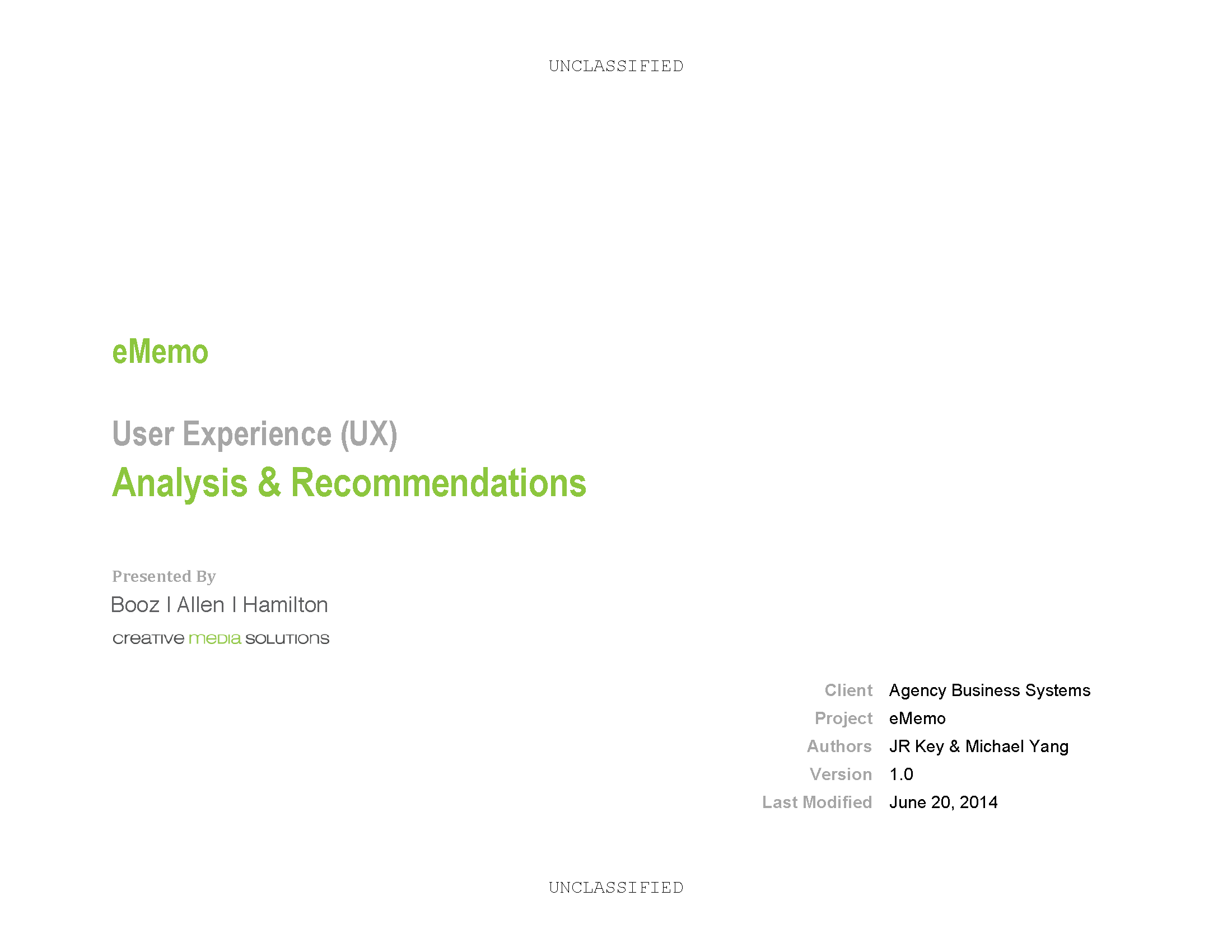
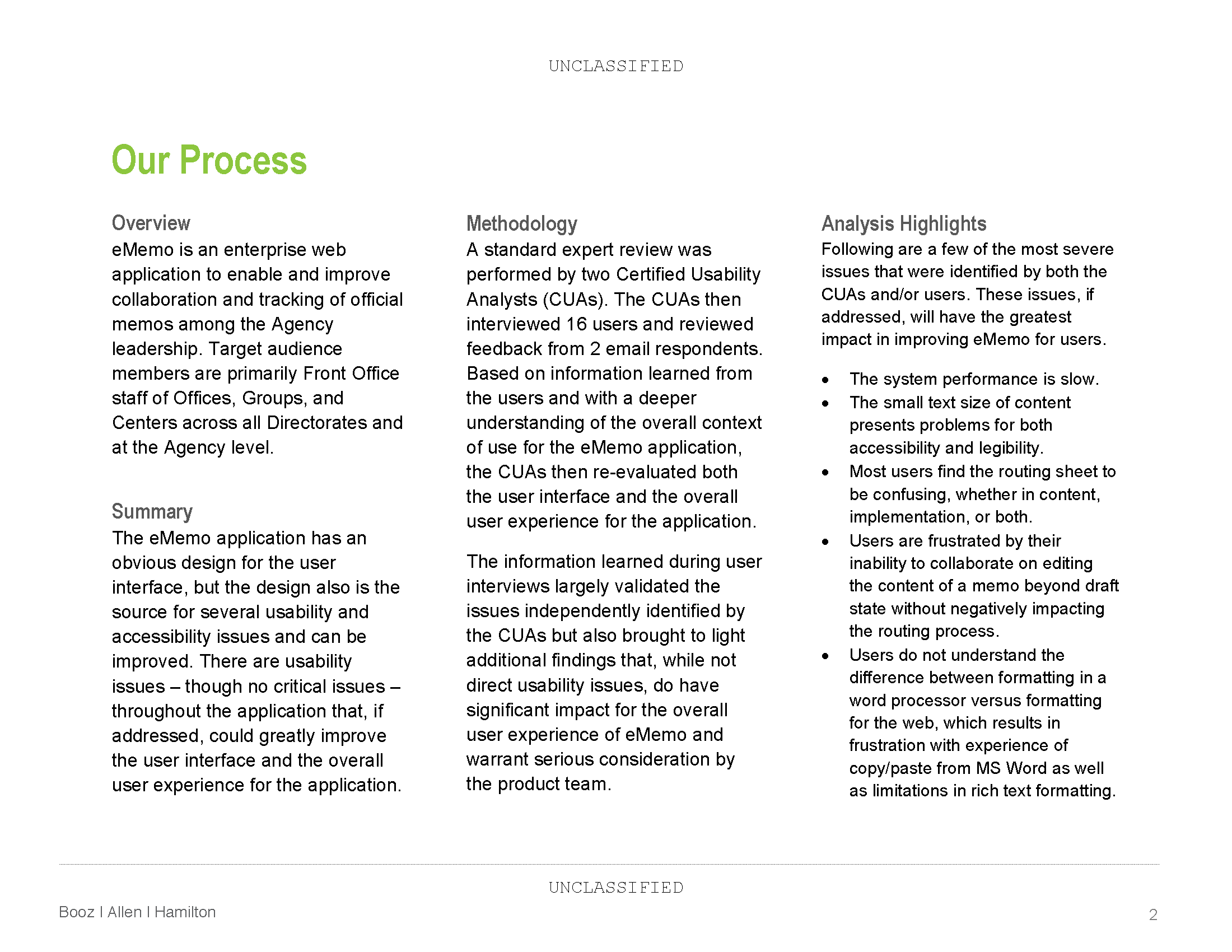
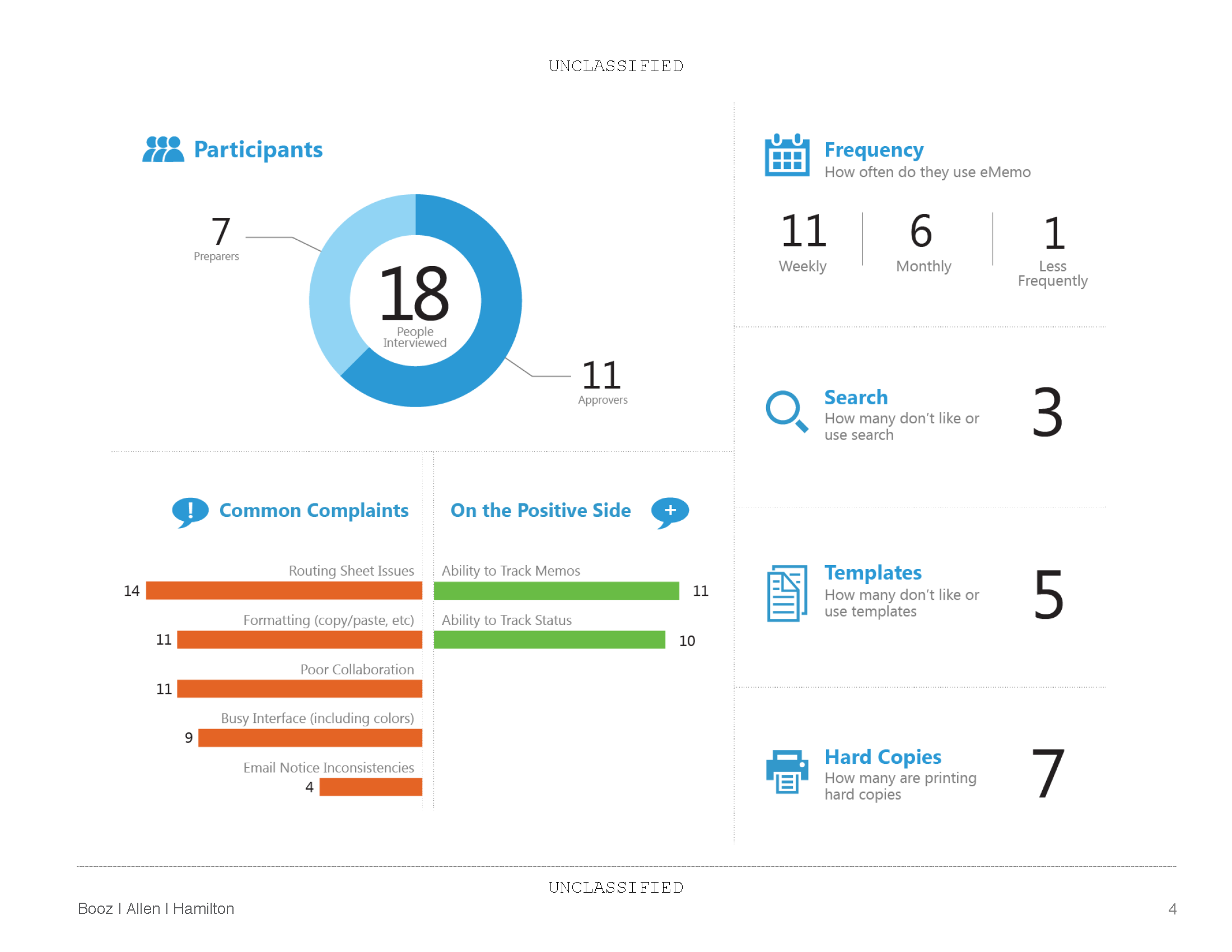
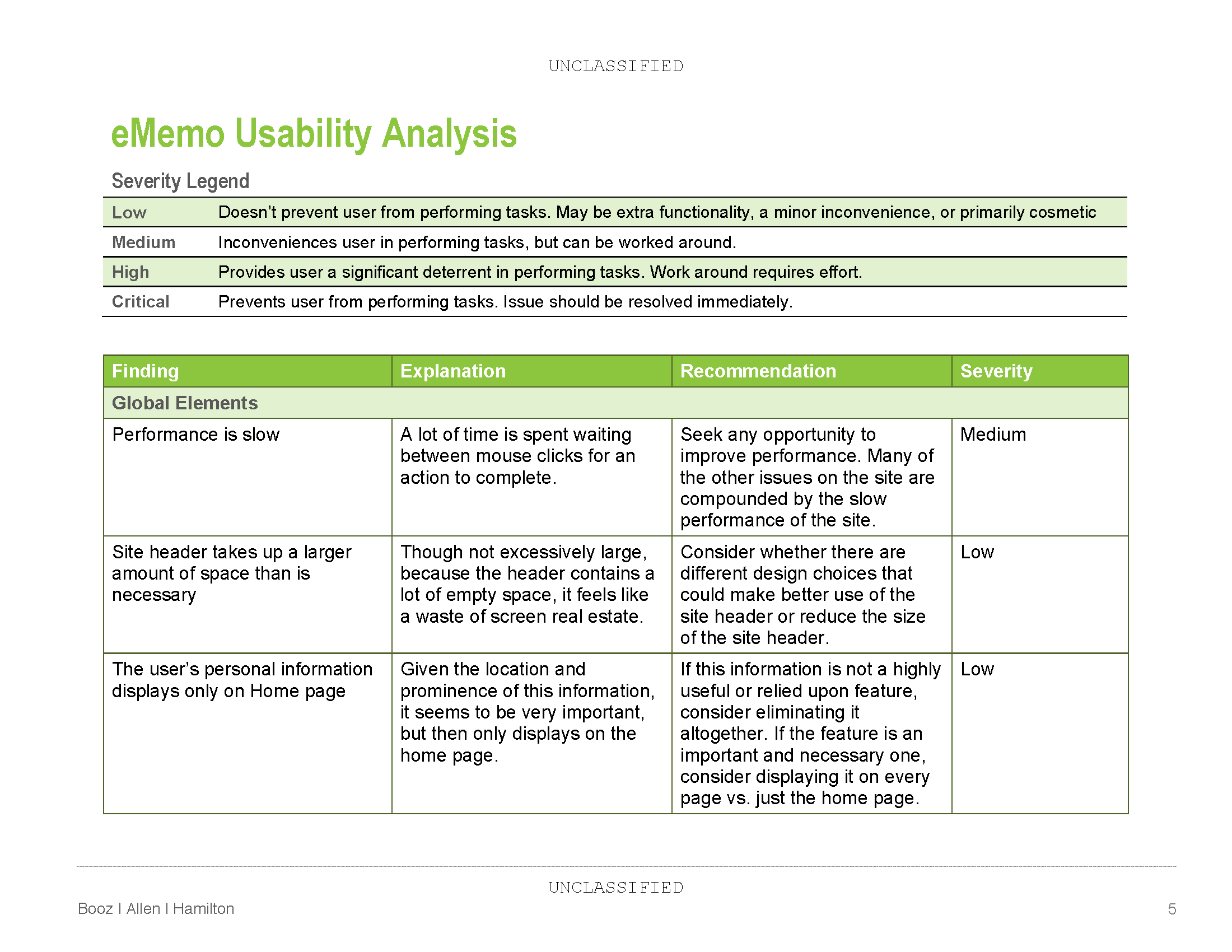
My colleague drafted UI mockups for which I suggested refinements.
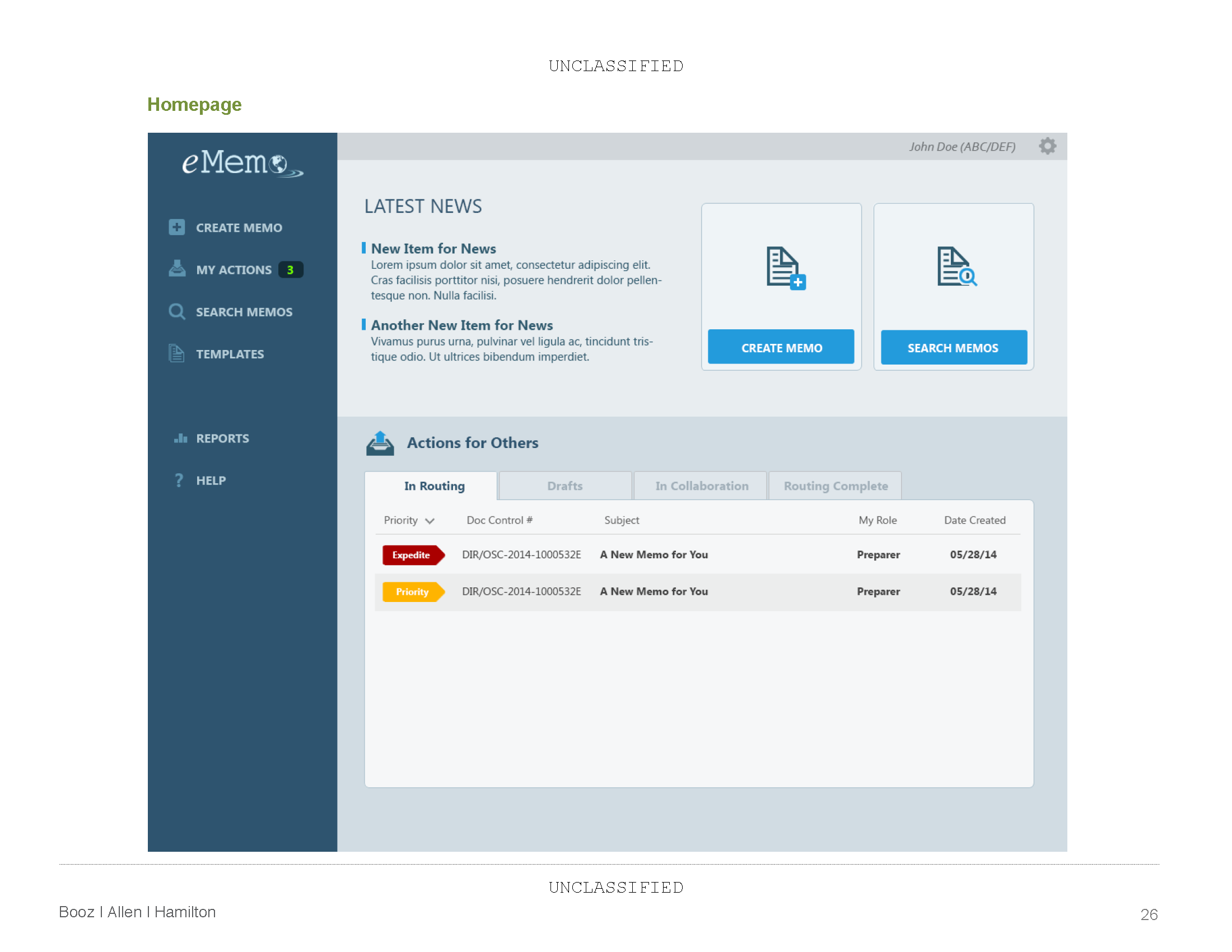
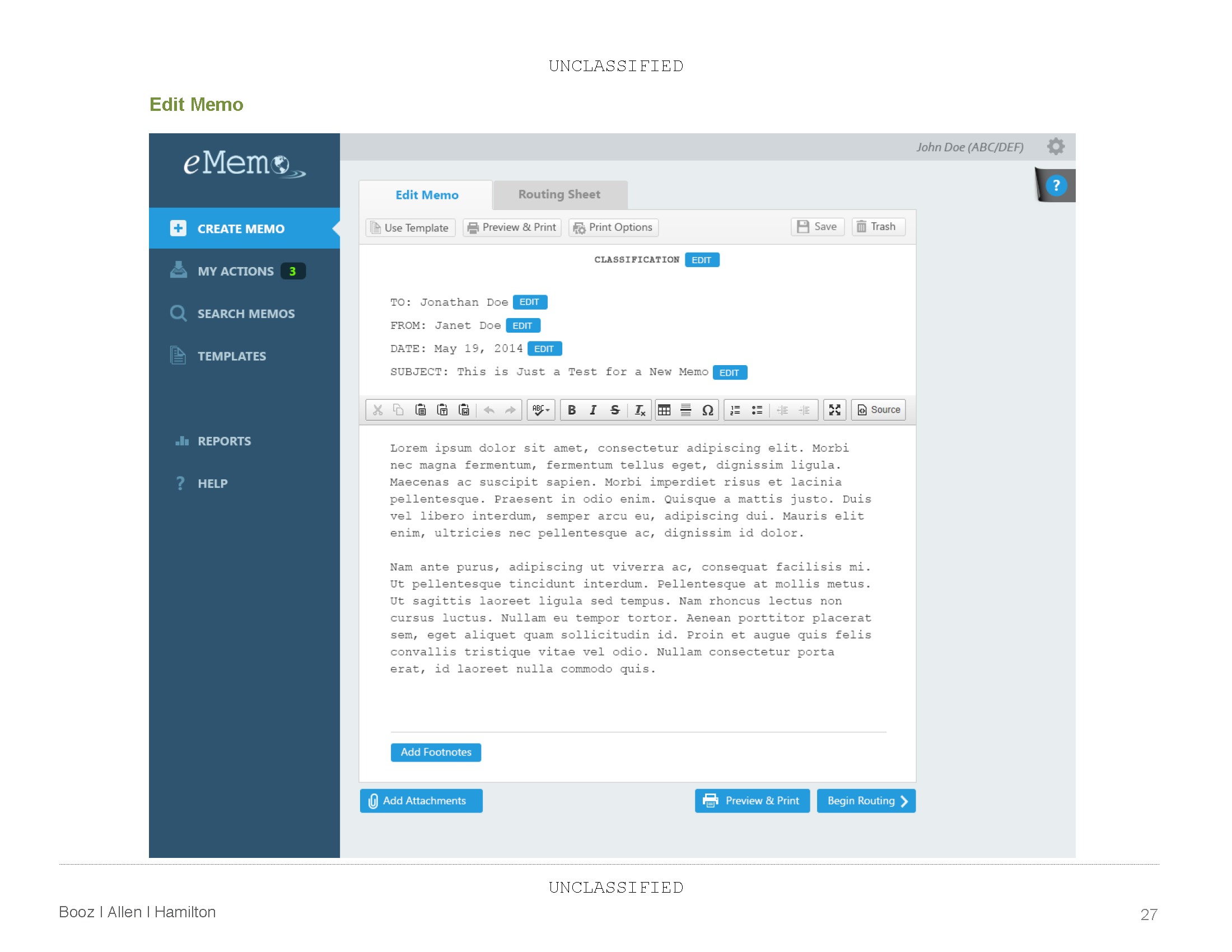
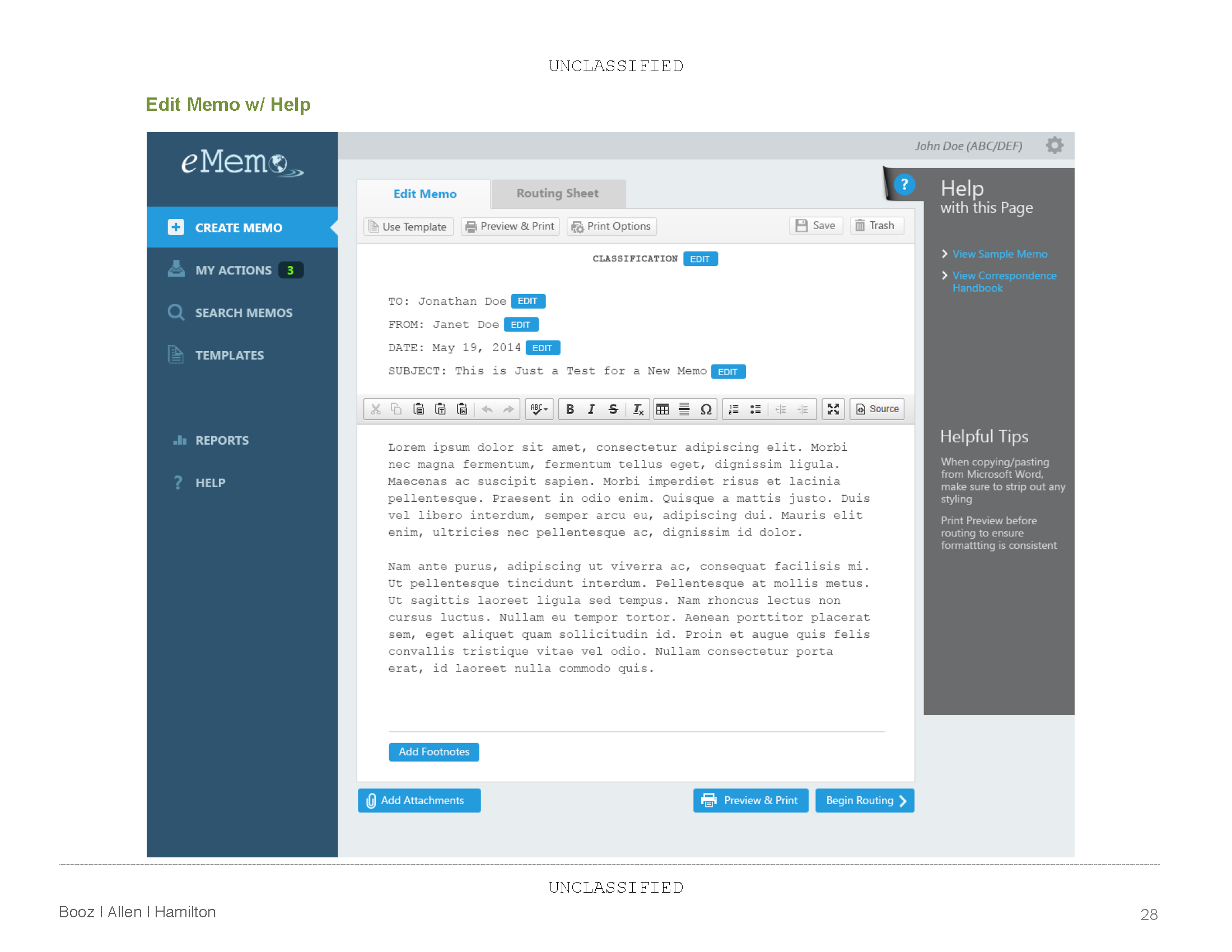
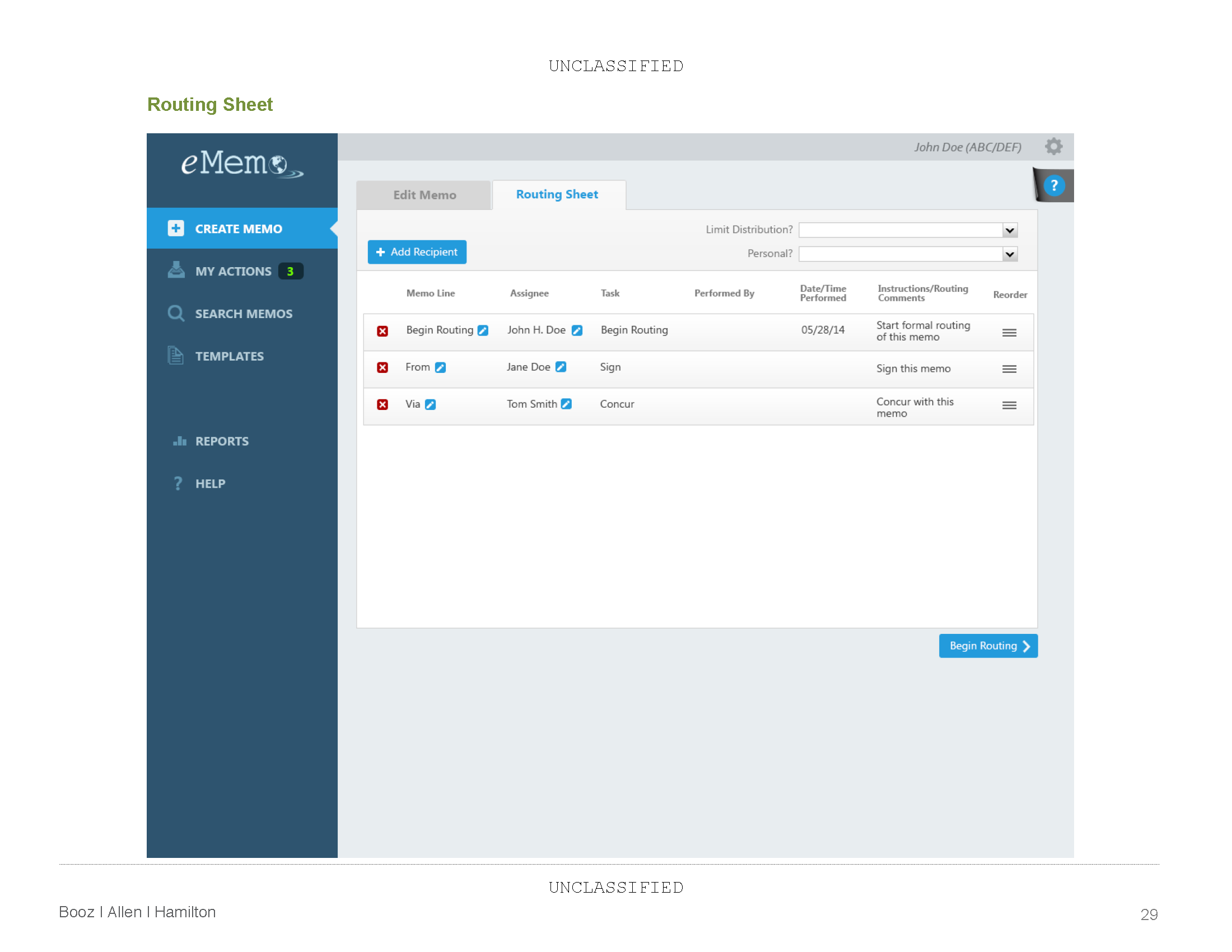
Finally, I briefed the client on our findings and recommendations. During the briefing, I learned that many of our findings validated some of their assumptions, but we provided additional insights on the challenges the eMemo product faced.
The Challenges and Lessons Learned
In the course of our research we learned that Agency executives were still legally bound by outdated legislation that mandated paper records with wet signatures. Furthermore, we found that the politics around document classification limitations for eMemo would also inhibit full adoption even if current legislation were to change.
